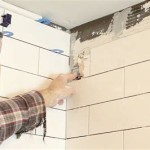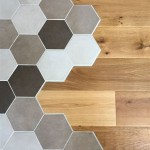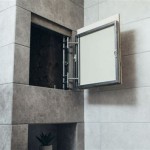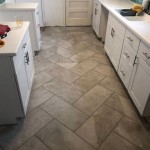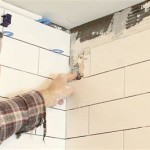Can You Put Tile On Hardie Board?
Hardie board, a type of fiber cement siding, has become increasingly popular for its durability, fire resistance, and low maintenance requirements. While it serves well as an exterior cladding, homeowners often wonder if it can also serve as a suitable substrate for tile installations. The answer, in short, is yes, but with some considerations and precautions.
Understanding Hardie Board as a Substrate
Hardie board, with its smooth and flat surface, presents a solid foundation for tile installation. However, it has a distinct characteristic that requires attention: its rigidity. Unlike traditional drywall, Hardie board is considerably less flexible. This rigidity can pose challenges in ensuring proper adhesion and preventing cracking, especially for large-format tiles or in areas subject to movement.
Preparation and Installation Techniques
To ensure successful tile installation on Hardie board, proper preparation is crucial. The process involves:
- Surface Preparation: Thoroughly clean the Hardie board surface, removing any dust, debris, or contaminants. Use a primer specifically designed for fiber cement to enhance adhesion and prevent moisture absorption.
- Thinset Mortar Choice: Select a thinset mortar formulated for exterior use on cement-based substrates. Choose a modified thinset for added flexibility, beneficial for accommodating potential movement in the Hardie board.
- Backer Board: For areas prone to significant movement, like showers or exterior walls where Hardie board is used as a substrate, consider using a waterproof backer board. This provides an additional layer of support and flexibility to prevent cracking.
- Grout Selection: Choose a grout that is resistant to moisture and stains, especially for outdoor tile installations. Epoxy-based grouts offer superior durability and water resistance compared to cement-based grouts.
Considerations for Successful Tile Installation
While Hardie board can be used for tile installations, it's essential to understand the specific considerations that ensure successful results:
Movement and Expansion
Hardie board, like any material, is subject to expansion and contraction due to temperature changes and humidity. Proper preparation, using a flexible thinset and backer board in areas prone to movement, helps to mitigate the impact of these changes and prevent tile cracking.
Moisture and Waterproofing
Hardie board is not inherently waterproof. While it resists moisture absorption, it's crucial to seal the surface properly, particularly in areas exposed to water, like showers. This can involve using a waterproof membrane or backer board.
Tile Size and Weight
Smaller-sized tiles, due to their greater flexibility, are generally easier to work with on Hardie board compared to large-format tiles. For large tiles, ensure the Hardie board receives adequate support and that the thinset is properly applied to maximize adhesion and prevent cracking.
Installing tile on Hardie board can be a successful approach with proper preparation and careful consideration of these factors. By understanding the material's characteristics and adhering to best practices, homeowners can achieve durable and aesthetically pleasing tile installations on Hardie board surfaces.

How To Install Hardiebacker Cement Board On Floors James Hardie Pros

Hardie Backer Boards Everything You Need To Know Walls And Floors

Tile Installers Select Hardiebacker Cement Board As Most Preferred Brand 2024 02 22 Stone World

How To Install Cement Board The Home Depot

Hardie Backer Boards Everything You Need To Know Walls And Floors

How To Install Cement Board The Home Depot

Tile Backerboard Material Options Fine Homebuilding

Hardiebacker Cement Board Tile Backer James Hardie

How To Install Cement Board For Tile Projects Diy Family Handyman

How To Install Cement Backer Board For Floor Tile Installation The Home Depot
Related Posts


